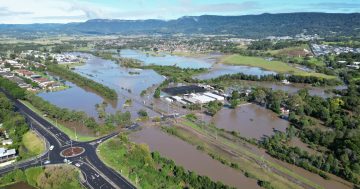 1. This week 10 years ago, the Commonwealth reiterated its commitment to progressively transfer the Malabar Headland site to NSW to create a coastal national park and public open space accessible to the community for recreational use.
1. This week 10 years ago, the Commonwealth reiterated its commitment to progressively transfer the Malabar Headland site to NSW to create a coastal national park and public open space accessible to the community for recreational use.
Special Minister of State, Gary Gray said the first stage of the national park had been officially gazetted and there had been a huge clean-up, with 235 tonnes of waste and contaminated soil removed to prepare the site.
“We are resolutely committed to create, 12 kilometres south-east of Sydney, a beautiful new coastal park for permanent public use,” Mr Gray said.
2. The Australian Parliament passed laws establishing new offences of forced marriage and harbouring a victim as well as standalone offences of forced labour and organ trafficking, while broadening the existing offences of sexual servitude and deceptive recruiting for sexual services to apply to all forms of servitude and deceptive recruiting, regardless of industry.
Attorney-General, Mark Dreyfus said the laws would work to ensure those who helped people commit people-trafficking, slavery or slavery-like offences would be charged as well as the primary perpetrators.
Mr Dreyfus said the laws also included a new standalone forced labour offence, which meant that labour exploitation would now be prosecuted wherever it occurred, including where the victim was not moved across a border.
3. Prime Minister, Julia Gillard announced the establishment of the National Insurance Affordability Council to coordinate the risk management of damaging floods and other natural disasters, make recommendations on mitigation projects, and help reduce natural disaster insurance premiums.
Ms Gillard said priority areas for the Council included a $7 million contribution to building the Roma levee and $10 million to upgrade flood defences in Ipswich, as well as $50 million over two years to any NSW Government proposal for flood mitigation in Western Sydney by raising the Warragamba Dam.
“Minimising damage from flood and other natural disasters is the only sustainable way to reduce insurance premiums over time,” Ms Gillard said.
4. Victorian Minister for Ageing, David Davis announced a new Commissioner for Senior Victorians to boost the community participation of seniors and develop an age-friendly society.
Mr Davis said by 2051, 22 per cent of the Victorian population would be aged 65 and over, and 8 per cent would be aged over 80, so the Commissioner would chair a Ministerial Advisory Committee to ensure better understanding of the needs of older people and coordinate efforts across government.
“The new Committee will develop a whole-of-government older person’s action plan, detailing strategies and actions under way across departments to address participation of older people and coordinate the plan across government,” Mr Davis said.
5. NSW Premier, Barry O’Farrell announced the establishment of the Office of Coal Seam Gas (CSG) Regulation in the Department of Trade and Investment and changes to the Environment Protection Authority (EPA) to take responsibility for compliance and enforcement of new rules applying to the CSG industry.
Mr O’Farrell said the package would require all exploration, assessment and production titles and activities to hold an Environment Protection Licence; the Chief Scientist and Engineer to conduct an independent review of all CSG activities in NSW; and the introduction of exclusion zones.
“We have declared country towns and suburbs across NSW ‘no-go zones’ for CSG activities and established the EPA as the cop on the beat to enforce environmental and health regulations,” Mr O’Farrell said.
6. Also in NSW a decade ago, new laws were developed to allow for early intervention in dysfunctional Local Councils, with Minister for Local Government, Don Page saying a minority of the State’s Councils and Councillors had failed to meet their obligations, resulting in services being held up or grinding to a halt.
Mr Page said the legislation would allow the State Government to “nip these problems in the bud”.
“It is unacceptable that services including planning approvals and basic maintenance are put in limbo because of Council infighting, Councillors indulging in personal vendettas or petty political squabbles,’’ Mr Page said.









